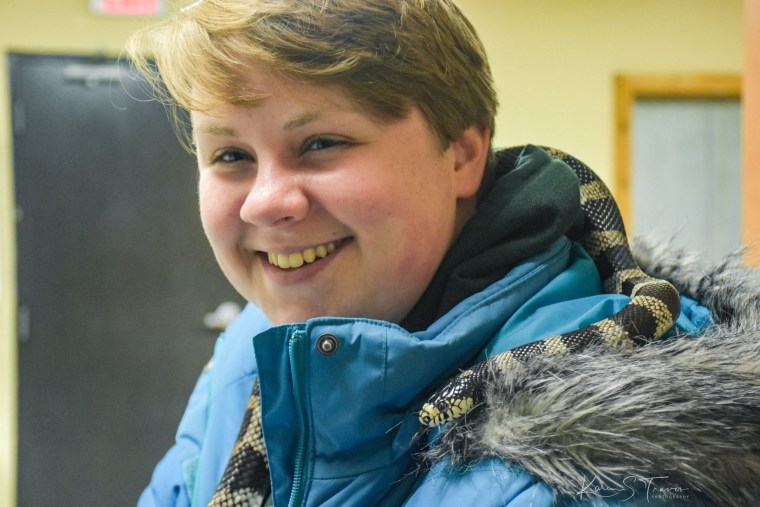The death of a young intern killed in a lion attack at a conservation center in North Carolina while she was working raises questions about safety procedures in zoos and other wildlife centers around the country.
Alexandra Black, 22, died Sunday when a lion escaped a locked space at the Conservators Center in Caswell County during a routine cleaning of an animal enclosure. Black's family said she had been employed at the center for 10 days.

Ron Magill, a spokesman with Zoo Miami, told NBC News that they have a rigorous procedure for keeping dangerous animals separate from staff members, volunteers and interns, which includes keeping the animals in cages that contain a series of locks.
"You cannot remove your key from the lock until the lock is properly in place," Magill said.
The zoo also allows only full-time keepers who pass a six-month probation period to enter the enclosures where carnivores are kept, Magill said. As for interns, they are not allowed to enter those enclosures.
"They do a lot of grunt work, like delivering hay, watching and learning and preparing diets (for animals)," Magill explained.
At the North Carolina Zoo in Randolph County, located more than 70 miles from the Conservators Center, employees have to undergo training that includes learning about safety measures and working under supervision.
“This is the kind of zoo where you have to have a good amount of experience,” Jennifer Ireland, Curator of Mammals, told NBC News.
Ireland said the zoo does not hire keepers who don't have prior experience working with animals considered dangerous.
The zoo ensures the safety of its employees, interns, and volunteers, by keeping wild animals behind locked hydraulic doors or gates.
"Our hydraulic doors require a key to turn on. Only trained or qualified keepers have the keys to turn on these doors and unlock gates," Ireland said, adding that two keepers have to check all doors and locks before animals are moved from one space to another.
Ireland said interns at the North Carolina Zoo are allowed to work in areas with dangerous animals, but only under the supervision of trained keepers.
"They perform such tasks as cleaning enclosures, preparing diets, and record keeping," she said. "Interns are not considered trained or qualified keepers so they are not allowed to shift dangerous animals from one space to another and are not considered part of the security verification protocol."
The Conservators Center, where Sunday's incident took place, did not immediately return NBC News' request for comment on its safety measures and protocols, but said in a statement Monday: "When our husbandry teams clean big-cat enclosures they follow a safety protocol that involves moving the cats into a separate space and securing them before humans enter the adjacent space."
"The specifics of what happened are still under investigation," the statement continued.
The lion that attacked Black was shot and killed by first responders "by necessity," the organization said.